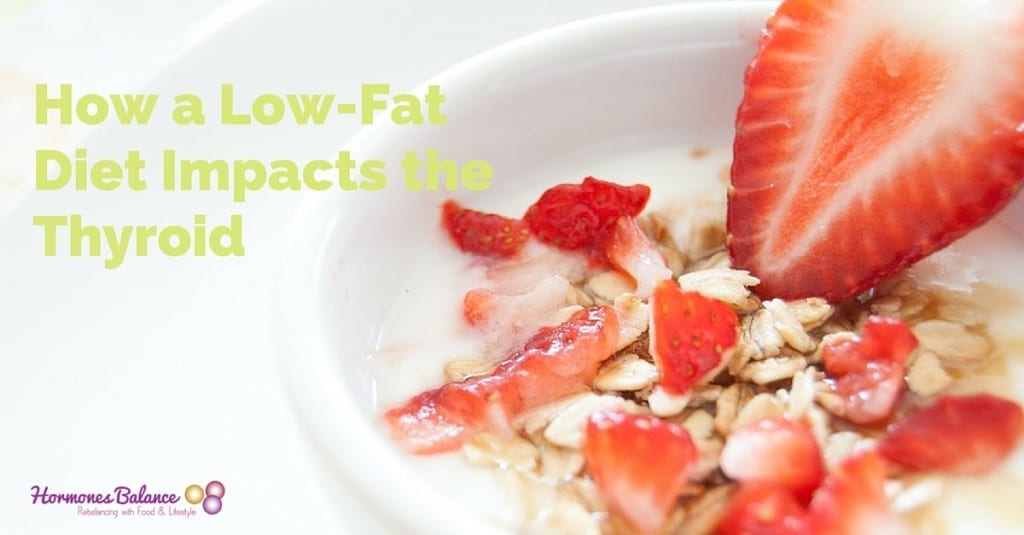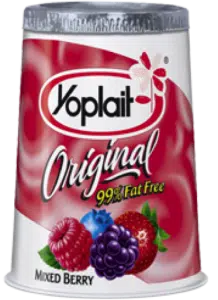
Food for thought here for you: the French eat so much butter and they don’t seem to have an obesity pandemic. The Italians and the Greeks drown their food in olive oil and they too seem to be doing just fine.
The Masai tribes eat little else than fat (meat and milk-based diet), and needless to say, have bodies you and I would die for. In fact, 100 years ago, our great grandparents used to eat bacon and butter as the backbone of their daily diet and had no weight or heart issues.
On the other hand, in America, we created the “low fat” diet which promises to shave off the pounds, prevent heart diseases and keep us overall healthy. Is it really delivering?
Interestingly, I googled “low fat diet research” and found no credible independent (meaning: not sponsored by the food companies) research that would prove that “low fat” is making us any healthier or lighter.
This, however, is not to say that eating lots of fat will make you healthy either.
So let’s take it one step at the time.
Can we just agree that not all fats are the same?
See, because this is what happened first: in the 1990s someone found that trans fats are making us really sick. I thought you might want to know that trans fats are created in an industrial process that adds hydrogen to liquid vegetable oils to make them more solid.
Hint here: name for trans fats is “partially hydrogenated oils”. They are very cheap to make and give food a reasonably good texture and taste. The problem is: our body does not process them effectively, and this is how they are making us sick.
So, banning trans fats was a great move. Somehow, the message got oversimplified and all fats got the “bad” label. The media amplified that belief and we, the public, bought the story and the marketing folks at the food companies saw this as an opportunity to sell us a new product. “Low fat” was born– a very profitable business today.
Low fats diets have also had a detrimental impact on the thyroid (as much as overall health, including hormonal health). To understand why, let’s look at why we need fat in the first place:
- Fats help the body use vitamins. Vitamins A, D, E, and K are fat-soluble vitamins, meaning that the fat in foods helps the intestines absorb these vitamins into the body. These vitamins are also often deficient in thyroid patients.
- Fats make hormones. First, it’s important to understand that hormones are created from building blocks, with the primary starting block being cholesterol. The body creates cholesterol and then uses it to make hormones including testosterone, estrogen, progesterone and cortisol. When we starve our bodies of cholesterol, the healthy fats and real foods from which cholesterol is made, our bodies lack fuel to make the building blocks. As a result, over time, our hormone levels will plummet. Our thyroid produces hormones too (T4) and similarly takes a hit when all other hormones are running low.
- Fats create healthy bowels by helping move the food through the intestines – lack of fats creates constipation which is common in poor thyroid health.
- Fats and proteins are essential in maintaining a healthy digestive system and as you know this is key in thyroid health.
- Fats provide energy; gram for gram fats are the most efficient source of food energy.
- Fats build brains; fat provides the structural components not only of cell membranes in the brain, but also of myelin, the fatty insulating sheath that surrounds each nerve fiber, enabling it to carry messages faster.
- Fats make us satisfied with our meals so we don’t reach out for snacks in-between meals.
- Fat provides healthier skin. One of the more obvious signs of fatty acid deficiency is dry, flaky skin.
As you can see, our body, hormones and the thyroid need fats — it’s non-negotiable.
Take out the fat and the food tastes like a cardboard. Poor texture, dry, tasteless and it looks strange. But, the consumers want it this way, so what do the food makers do?
They add lots of sugar to give it taste.
They add artificial emulsifiers to give it a more compelling texture.
They add thickeners for it to taste creamier.
They add preservatives to make it last longer.
Meet your yogurt.
I will just pick one here: Yoplait. Yes, it is 99% fat-free. And, it also contains 26g of sugar, which is 7 spoons of sugar. One spoon of sugar is 3.8g, or let’s just say 4g to make things simple.
So, what can you do? Rather simply:
1. Stop buying low fat.
2. If you buy reduced fat produce, read the product labels for sugar content and to see if additives and preservatives were added to it.
3. Pick the right quality of fats coming from olive oil, coconut oil, avocado, and wild fish (like salmon).
4. Avoid hydrogenated oils and refined oils in your cooking.
5. Pick full-fat, unaltered, real food as close to nature as possible.
Many of my clients would exclaim after a diet change: “I eat all this fat and I’m losing weight!”.
Just try it.


I’ve been to,d to do low fat, I have a thyroid problem and now I’m ill. Please help
Have thyroid problem.Sweat a lot all the time.
Tried all sorts of things to decrease my sweating but still
Years ago my thyroid was faltering. Dry skin, lack luster energy, dimpled, misshapen, ridged nail beds, weight gain. Always had a good healthy diet from childhood. Problem reared in early-40s. Took 2 years to straighten out with decreased sugars, increased natural healthy fats. I had increased fats to 40% of my caloric intake for nearly a year without increasing my overall caloric intake. I had always taken in supplements, but now I feel they’re being utilized better. Keeping fats at 25-30% now. Going on 50 soon. Thyroid works fine. Weight fine. Energy fine. Skin tone improved, fewer wrinkles. Feel better. Answer not the same for everyone.
Were you having hyper or hypothyroid problems. I am mildly hypothyroid for decades and have nodules from 10 years ago that are getting larger. Do you use whole milk or a lower percent? What fats do you eat and about what percent is saturated from animals fats? Thanks. – Lisa
[…] How is a Low-Fat Diet Impacting Your Thyroid? https://www.mountainroseherbs.com/products/coconut-oil-unrefined/profileRaw Extra Virgin Coconut OilCompanyCategories: Uncategorized […]
Different Genetics too. I am not French or Italian, so it does not mean I should be eating like them just because they are healthy. The same goes with that China Diet Study. One diet is Not for all. I do so MUCH BETTER eating low fat. I always have. It helped with PMS and now menopause. Maybe my gallbladder & liver run slower, because my thyroid has always been tested Normal borderline low, but no doctor will treat me for it, saying Im still normal. I find eating foods that clean my liver help too. Some of us do not metabolize or digest Fat/Oils very fast or efficiently, which causes bloating. So, I say listen to your own body & how you feel. Try to eat as healthy, clean and less processed as we can and include cleaner fats like EVOO instead of processed pufa oils.